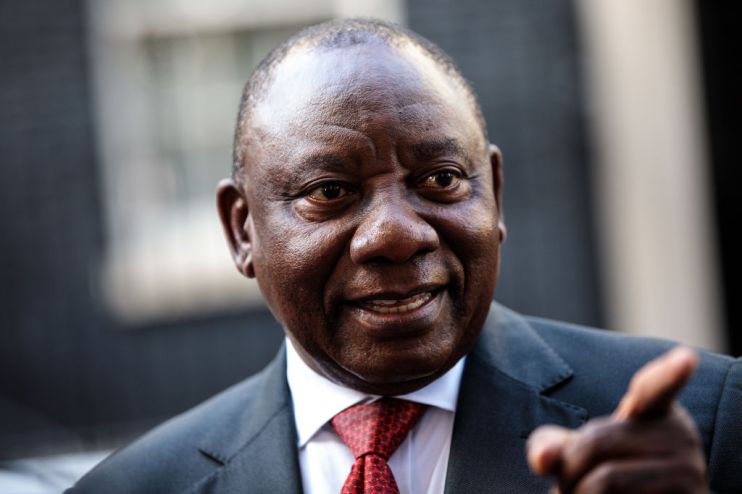South Africa warns of ‘vaccine apartheid’ if rich countries hog jabs

South African President Cyril Ramaphosa today warned of “vaccine apartheid” if wealthy nations hogged Covid shots while millions in poor countries died waiting for them.
South Africa and India have been pushing for a waiver on some intellectual property rights for vaccines and medicines at the World Trade Organization.
US President Joe Biden backed the proposal last week, though it may still take months to reach a deal.
Ramaphosa called on South Africans to support the waiver, saying that vaccines should be “a global public good”.
“It is about affirming our commitment to the advancement of equality and human rights, not just in our own country but around the world,” he wrote in a weekly newsletter.
“A situation in which the populations of advanced, rich countries are safely inoculated while millions in poorer countries die in the queue would be tantamount to vaccine apartheid.”
Sub-Saharan Africa has administered the fewest jabs relative to its population of any region, with roughly eight doses per 1,000 people.
That compares to 150 doses per 1,000 people globally, according to the World Health Organisation.
South Africa has ordered enough vaccines for 46 million of its 60 million people through deals with Johnson & Johnson and Pfizer.
Ramaphosa recalled that 20 years ago, South Africa faced off against “big pharma” over efforts to import affordable medicines to treat people with HIV.
“Years later, the world is in the grip of another deadly pandemic in the form of Covid-19. And once again, South Africa is waging a struggle that puts global solidarity to the test,” he said.
The president added that South Africa was one of only five African countries able to manufacture vaccines and that there was a need for new capacity to be built.
Ramaphosa’s comments came as Sir John Bell, the Oxford University Regius professor of medicine, said the UK should “tactically” distribute vaccines to the rest of the world.
“Tactically the most important thing for us to do is to make sure that other bits of the world get vaccines faster – the state of global vaccination is pretty lamentable at the moment and I think we need to really push to help that happen much more effectively,” he said.
“We’re vulnerable, not because we haven’t vaccinated our population, but if more variants come onshore from overseas – which they will naturally as people start to travel – we’re potentially going to be in trouble and that’s why we have a real interest in making sure everyone else is vaccinated.”